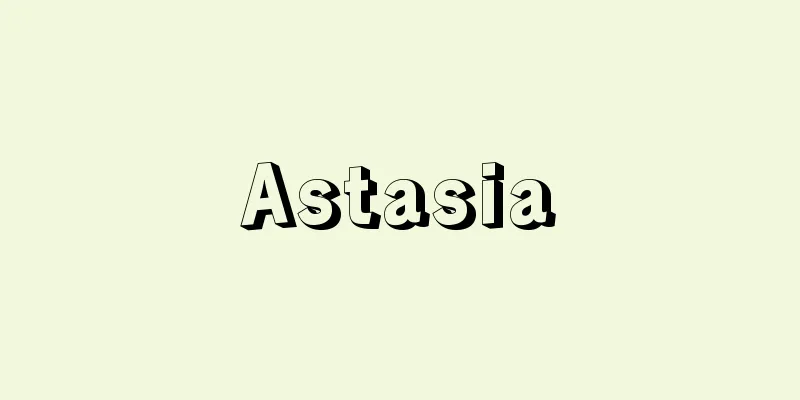National Mobilization Law - Kokkaso Doinho

|
This comprehensive mobilization control law was enacted after the Second Sino-Japanese War and during the Second World War. It was promulgated in April 1938 (Showa 13) and put into effect in May. Immediately after the outbreak of the Second Sino-Japanese War, the first Konoe Fumimaro cabinet enacted economic control laws such as the Temporary Fund Adjustment Law and the Temporary Measures Law for Imports and Exports, and further strengthened the wartime preparations as the war expanded, launched the National Spiritual Mobilization Movement, and established the Planning Board. The National Mobilization Bill, which was drafted mainly by the Planning Board, was submitted to the 73rd Diet in 1938 along with the Electricity National Control Bill. In the House of Representatives, members of the so-called liberal party, such as Saito Takao of the Minseito Party and Makino Ryozo of the Seiyukai Party, raised severe and critical questions, saying, "This is an unprecedentedly broad delegated legislation, and the government needs to seriously reflect on it," and "This is a bill that violates the Emperor's supreme power in the name of an emergency," but they were overwhelmed by military pressure and passed unanimously. The Social Mass Party strongly advocated for the passage of the bill, drawing attention. Although some members of the House of Peers opposed it, it was passed by a majority. During the deliberation of the bill, Army Air Corps Lt. Colonel Sato Kenryo, a member of the Military Affairs Section of the Military Affairs Bureau of the Ministry of the Army, who spoke as a government explanatory committee member, shouted "Shut up!" in response to a question from a member of the Diet questioning his eligibility to speak, causing a controversy. Army Minister Sugiyama expressed regret. This law was an enabling law that gave the government the authority to subject the lives of the people to total state control during wartime, from all resources, capital, and labor to trade, transportation, communication, and all other economic sectors, and to conscript citizens, prohibit labor disputes, and control speech. It was, in a sense, a carte blanche for the government. During the Second Sino-Japanese War, imperial ordinances based on this law, such as the National Conscription Order, the National Occupational Ability Declaration Order, the Price Control Order, the Daily Necessities Control Order, the Publication Restriction Order in Newspapers, etc., were created, and in March 1941, they were significantly revised to strengthen penalties, etc. When the Pacific War began, the application of these laws was expanded, completely restricting the lives of the people. [Yukio Naga] [References] | [Supplementary Materials] |Source: Shogakukan Encyclopedia Nipponica About Encyclopedia Nipponica Information | Legend |
|
日中戦争後、第二次世界大戦中に行われた網羅的動員統制法で、1938年(昭和13)4月公布、5月施行。日中戦争勃発(ぼっぱつ)直後、第一次近衛文麿(このえふみまろ)内閣は臨時資金調整法、輸出入品等臨時措置法などの経済統制法規を制定し、さらに戦争拡大に伴って臨戦体制を強化し、国民精神総動員運動を展開、企画院を設置した。その企画院を中心に立案された国家総動員法案は、電力国家管理案とともに38年の第73議会に提出され、衆議院では民政党の斎藤隆夫、政友会の牧野良三(りょうぞう)ら自由主義者といわれた議員が「前例のない広範な委任立法で政府は猛省を必要とする」「非常時に名をかりた天皇大権干犯(たいけんかんぱん)の法案である」などと厳しい批判的な質問を行ったが、軍の圧力に押し切られて全会一致で通過した。社会大衆党が法案の実現を強く主張して注目をひいた。貴族院では一部議員が反対したが、多数で通過となった。法案審議中、政府説明委員として発言した陸軍省軍務局軍務課員佐藤賢了(けんりょう)陸軍航空兵中佐が、議員から出された同中佐の発言資格を問う疑義に対して、「だまれ!」と一喝して問題となり、杉山陸軍大臣が遺憾の意を表した。この法律は、戦時においてすべての資源、資本、労働力から貿易、運輸、通信その他あらゆる経済部門に国家統制を加え、国民の徴用、争議の禁止、言論の統制など、国民生活を全面的に国家の統制運用に服せしめる権限を政府に付与した授権法であり、いわば政府への白紙委任状であった。日中戦争中に、同法に基づく勅令として、国民徴用令、国民職業能力申告令、価格等統制令、生活必需物資統制令、新聞紙等掲載制限令その他の統制法規がつくられ、41年3月大幅な改正が行われて罰則なども強化された。太平洋戦争に突入すると、その適用は拡大され、国民生活を全面的に拘束した。 [長 幸男] [参照項目] | [補完資料] |出典 小学館 日本大百科全書(ニッポニカ)日本大百科全書(ニッポニカ)について 情報 | 凡例 |
<<: National Anthem Grand View - Kokka Taikan
>>: Total national mobilization
Recommend
Articles - Articles
...It refers to the process of organizing a numbe...
Tokugawa Yoshimune
Year of death: 1751.7.12 (16.20.1751) Year of birt...
Kokusuikai - Kokusuikai
This is one of the many right-wing groups formed a...
Kasai [river] - Kasai
A major tributary of the Congo River. It originate...
aura
A brand of foreign cigarettes sold in Japan. Impor...
Treaty of Ansei
…A treaty that established diplomatic relations b...
Doryalis caffra (English name) Doryaliscaffra
…[Sumihiko Hatsushima]. … *Some of the terminolog...
Levallois-Perret (English spelling)
…One of the techniques for making stone tools in ...
Hypochoeris ciliata (English spelling) Hypochoerisciliata
… [Morita Tatsuyoshi]. … *Some of the terminology...
Cardinal utility function - cardinal utility function
...The function u(・), which assigns a numerical v...
Monk seal - Monk seal (English spelling)
A general term for mammals belonging to the genus ...
Tayassuidae
...A boar-like even-toed ungulate found in North ...
Okawado Mikuriya (Okawado Mikuriya)
A mikuriya in the territory of Ise Jingu, whose re...
Akpata - Akpata
...There are no special arrangements other than t...
Moraea (English spelling)
A perennial plant of the Iridaceae family cultivat...


![Obama [Hot Spring] - Obama](/upload/images/67cfd927aae00.webp)






![Tinian [island] - Tinian](/upload/images/67cc449775ca7.webp)